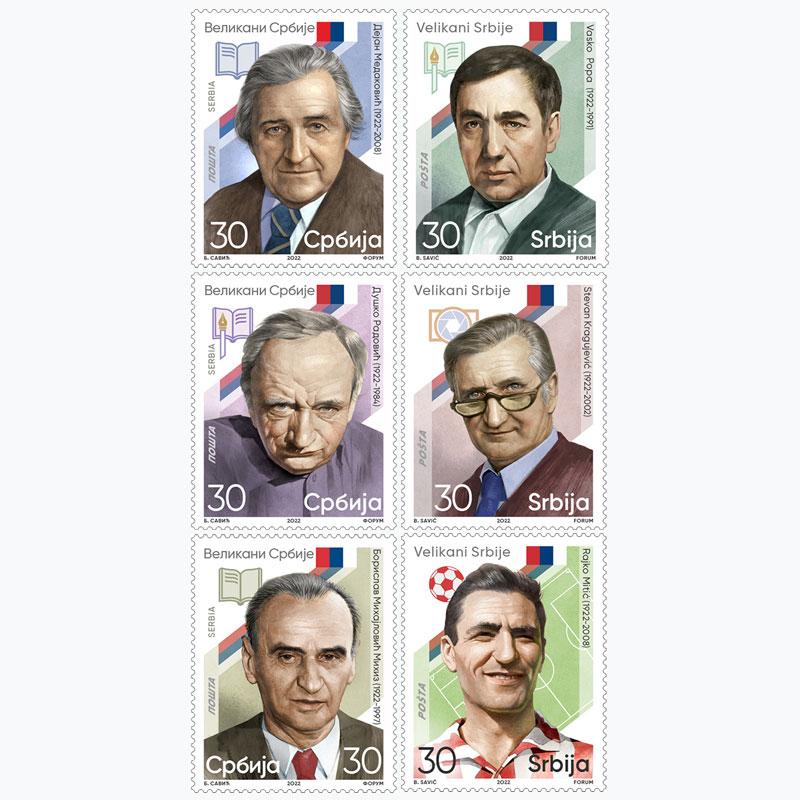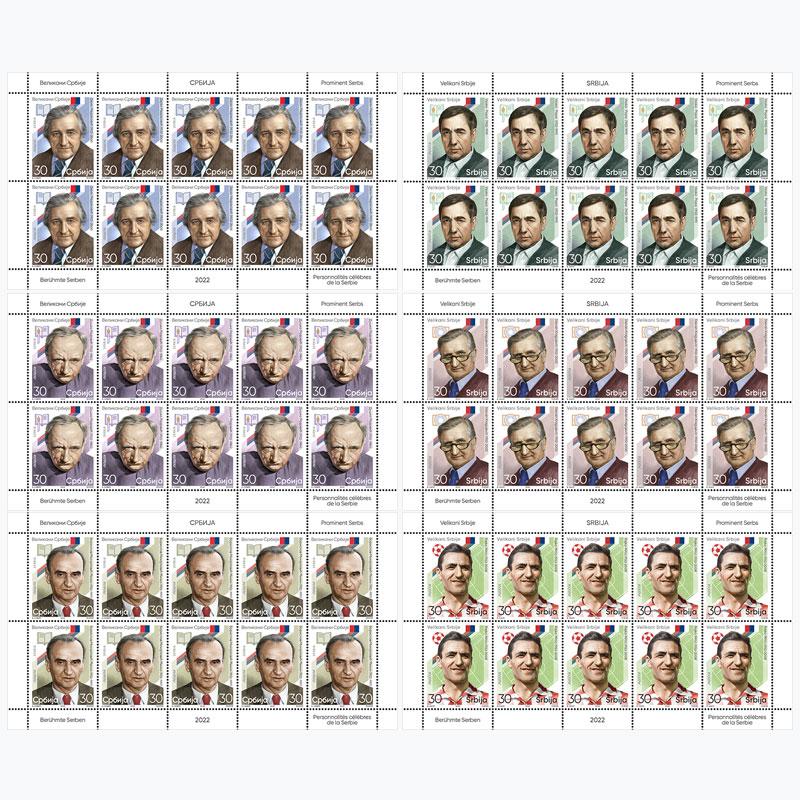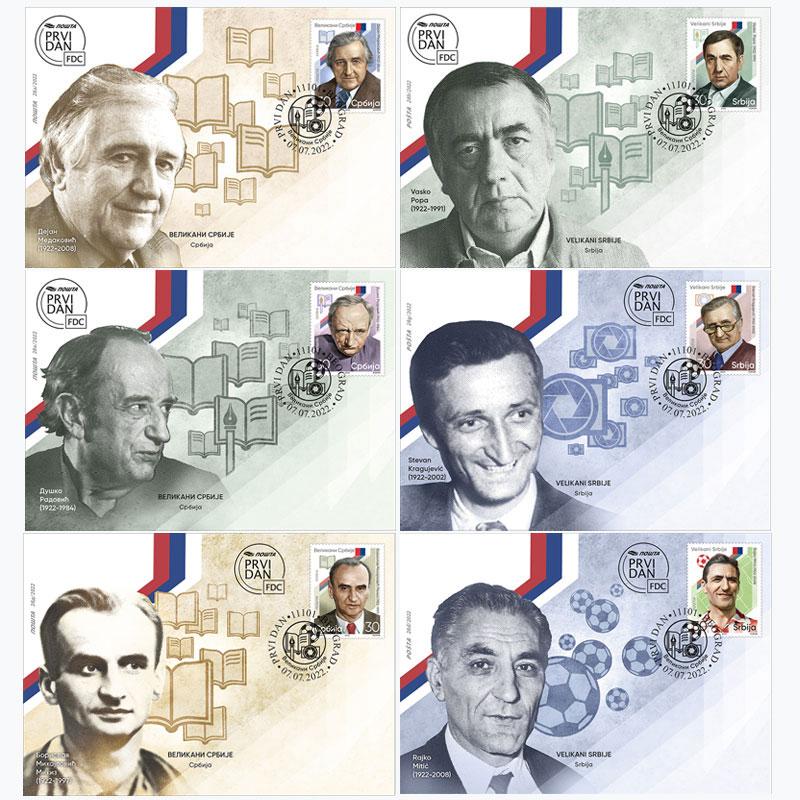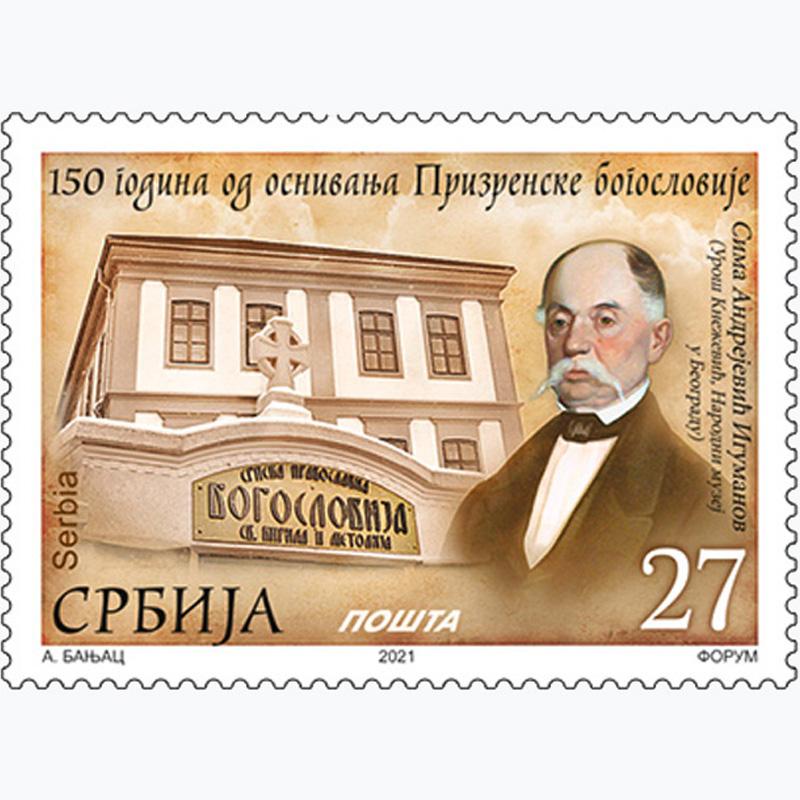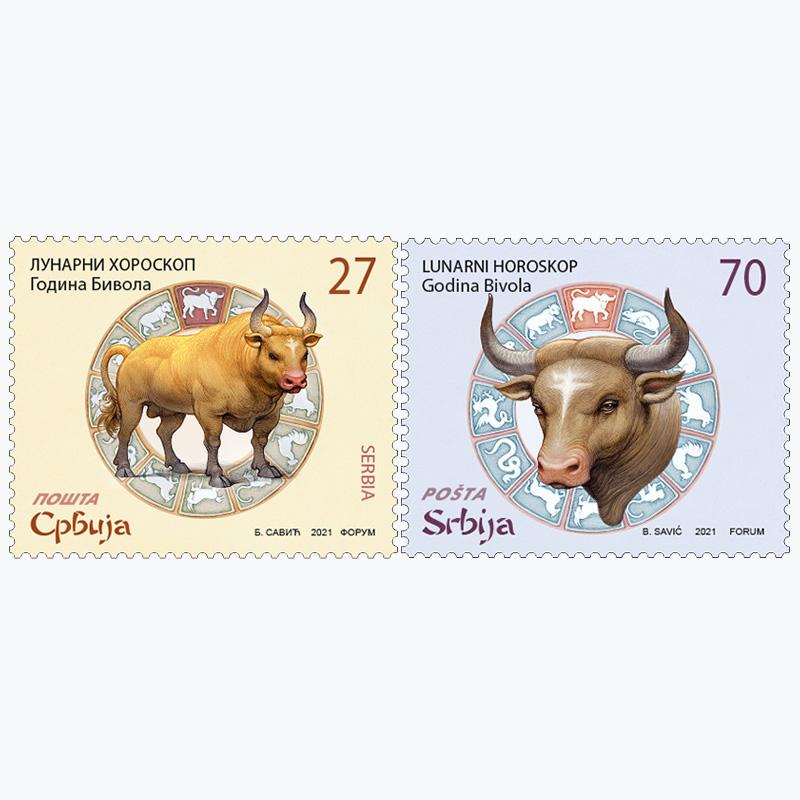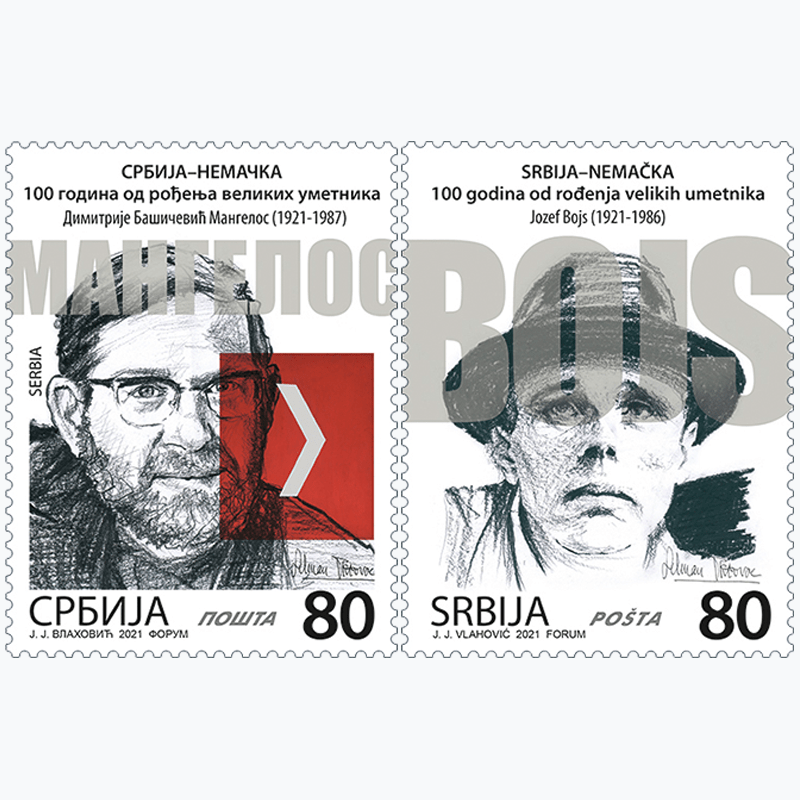Description
Дејан Медаковић (Загреб, 7. јул 1922 – Београд, 1. јул 2008),академик и председник САНУ, историчар уметности, песник и књижевник, рођен је 7. јула 1922. године у Загребу. Гимназију је завршио у Сремским Карловцима 1941. године. Током Другог светског рата живео је у Београду, где је као асистент-волонтер радио у Музеју кнеза Павла.
He graduated from the Faculty of Philosophy of the University of Belgrade in the group for art history in 1949. He obtained his doctorate at the Serbian Academy of Sciences in 1954 with the dissertation ”Graphics of Serbian printed books of the 15th–17th century”. Immediately after that, he was elected an assistant at the Faculty of Philosophy in Belgrade, where he acquired all the teaching titles, and he was even the dean of this faculty from 1971 to 1973. He was elected a corresponding member of SASA in 1972, and a regular member in 1981. As one of the most accomplished Serbian intellectuals of his time, an erudite who grew up at the Academy performing numerous functions, he reached the peak of his life and scientific career by being elected president of the Serbian Academy of Sciences and Arts in 1999.
Numerous awards and recognitions, together with his epochal works, best depict the rich work of academic Dejan Medaković, which left a deep mark in Serbian science and culture. He died on July 1, 2008 in Belgrade.
Васко Попа (Гребенац, 29. јун 1922 – Београд, 5. јануар 1991), српски песник и академик, један је најпревођенијих наших песника, зачетник послератне модерне поезије, који је и сам преводио са француског језика.
Romanian by his ethnic background, he completed his elementary and secondary education in Vršac and enrolled at the Faculty of Philosophy in Belgrade. He continued his studies in Bucharest and Vienna, and during the Second World War he was imprisoned in the German concentration camp in Zrenjanin. After the end of the war, he graduated from the Romance group of the Faculty of Philosophy in Belgrade in 1949.
He published his first poems in the newspapers ”Književne novine” and ”Borba”. His first collection of poems ”Bark” (1953), along with ”87 poems” by Miodrag Pavlović, is considered the beginning of Serbian post-war modern poetry. That book initiated discussions among the literary public and had a significant impact on later generations of poets. After the Bark, Popa published collections of poems: ”No-Rest field” (1956), ”Secondary Heaven” (1968), ”Earth Erect” (1972), ”Wolf Salt” (1975), ”Home in the Middle of the Road” (1975), ”Raw Meat” (1975), ”Cut” (1981) as well as the cycle of poems ”The Little Box” (1984), part of the future collection ”Iron Plantation”, which he never completed.
From 1954 to 1979, he worked as an editor at the Nolit publishing house in Belgrade. He prepared collections: ”The Golden Apple” (Belgrade, 1958), ”Pealing Man” (Belgrade, 1960), ”Midnight Sun” (Belgrade, 1962). In Vršac, on May 29, 1972, he founded the Literary Municipality of Vršac (KOV) and started an unusual library on postcards, called ”Free Leaves”. In the same year, he was elected a corresponding member of the Serbian Academy of Sciences and Arts. He is one of the founders of the Vojvodina Academy of Sciences and Arts (December 14, 1979) in Novi Sad. He died in Belgrade on January 5, 1991.
Душко Радовић (Ниш, 29. новембар 1922 – Београд, 16. август 1984) био је српски песник, писац, новинар, афористичар и ТВ уредник. Био је главни уредник „Пионирских новина”, уредник Програма за децу Радио Београда, уредник Програма за децу Телевизије Београд, сценариста и текстописац сонгова за популарну дечију телевизијску серију „На слово на слово”, уредник листа „Полетарац”, новинар „Борбе”, а од 1975. уредник Студија Б.
His show ”Good Morning Belgrade” began airing on Studio B in July 1975, and was cancelled in 1982, when certain officials of the ruling Communist League described Duško's aphorisms as ”political messages with a pronounced moralistic and demagogic background. ”
Аутор је збирки песама за децу „Поштована децо”, „Смешне речи”, „Где је земља Дембелија”, а генерације деце одрастале су уз његове песме које је изводио дечији хор „Колибри”, међу којима су Плави зец, Страшан лав, Здравица (Све што расте хтело би да расте). Аутор је и радио–драма за децу „Капетан Џон Пиплфокс”, „Како су постале ружне речи”, „Приче за Гордану”, а забележено је и да је, као члан редакције и преводилац, дао имена ликовима у познатом стрипу „Талични Том”.
He died on August 16, 1984 in Belgrade. The widest audience remembers him for the aphorisms with which he woke up the people of Belgrade on the airwaves of Radio Studio B, which were later published in three books ”Good Morning Belgrade”.
He was a big fan of soccer and a fan of FC Partizan.
Стеван Крагујевић (Сента, 4. фебруар 1922 – Београд, 17. април 2002), био је један од најзначајнијих југословенских и српских фоторепортера и фотоуметника. Фотографијом је почео да се бави као четрнаестогодишњак, а забележено је и да је био аутор прве колорне насловне странице у послератној Југославији (насловна страна часописа „Дуга”, број 313 из 1950. године). Наиме, колор фотографија „Гушчарице”, младе жене са корпом и гускама у војвођанском сокаку, коју је Крагујевић направио 1943. године, објављена је на насловној магазина „Дуга”, који је тако постао први наш илустровани магазин са насловницом у колору.
As the first photo reporter of the Directorate for Information under the Presidency of the SFRY, he made, among other things, the first official portrait of President Tito, in 1950, intended for foreign embassies and correspondents. In his later career, Kragujević made a rich fund of recordings of President Tito, following his travels in the country and abroad, meetings with foreign statesmen, workers, artists, citizens, but, in addition to official photographs, he also made anthological, unofficial recordings. From 1951 to 1953, he was a member of the Tanjug photojournalist team, and from 1953 until his retirement in 1982, he was a photojournalist and photography editor of the daily ”Politika”.
During his work in ”Politika”, he performed other important jobs - he was the head of the photo laboratory and photo service of this house, and until his retirement, as a photo editor, he significantly contributed to the introduction of new sections in ”Politika”, especially those that emphasized the full value and importance of photography (”In pictures and words”).
The rich photo-documentary endowment, the legacy of Stevan Kragujević, is in the Museum of Yugoslavia, the Society Adligat and the Historical Archive of Senta.
Борислав Михајловић Михиз (Ириг, 17. октобар 1922 – Београд, 15. децембар 1997) српски књижевни критичар, књижевник, драматург, сценариста, есејиста, путописац, песник, драмски писац и полемичар.
He finished the classical grammar school in Sremski Karlovci, and after the war he enrolled at the Faculty of Philosophy, a group for Serbo-Croatian language and literature in Belgrade.
From 1951 to 1954, he worked as a literary critic for NIN, but due to his association with the then unsuitable Milovan Đilas, he was forced to leave this job. He was then the manager of the Matica Srpska Library, the artistic director of Avala Film, the editor of the publishing company Prosveta, and together with Mira Trailović he created the Atelier 212 theatre and was its artistic advisor from 1971 to 1983.
He has collaborated with the following newspapers and magazines: NIN, Politika, Književne novine, Književna reč, Dnevnik, Zagreb's Vjesnik, Ljubljana's Delo, Vienna's Die Presse, Duga, etc.; in the journals Letopis Matice srpske, Književnost, Savremenik, Delo and many others in which he published articles, essays, reviews, travelogues, feuilletons, and interviews. He wrote poems, literary criticism, essays, travelogues, polemics, and plays. Several dramatizations of famous literary works came out of his pen.
He is the holder of many literary awards: the Sterija Award and the ”Marin Držić” Award of the Association of Dramatic Artists of Yugoslavia for the drama ”Banović Strahinja”; Sterija's awards for dramatization of Nušić's ”Autobiography”, Sterija's awards for adaptation of Pekić's ”Correspondence”; awards of the Library ”Đorđe Jovanović” for the book of criticism ”Portraits”, awards of Miloš Crnjanski for the first book ”Autobiography – on others”, etc. Belgrade theatres, as well as many other stages across the country, performed Mihiz's plays, and Matica Srpska has been publishing the collected works of Borislav Mihajlović Mihiz since 2021.
Рајко Митић (Дол, 19. новембар 1922 – Београд, 29. март 2008), фудбалер и спортски новинар, први капитен Црвене звезде и прва Звездина звезда. Каријеру је почео пре 1940. у београдском БСК, да би после рата заиграо за Црвену звезду, у којој се и прославио. Играо је на позицији десне „полутке”. За репрезентацију Југославије дебитовао је на првој међудржавној утакмици после Другог светског рата, 9. маја 1946. против Чехословачке (2:0) у Прагу. Током 11 година играња за репрезентацију Југославије, наступио је 59 пута за најбољу селекцију и постигао 32 гола. Учествовао је на светским првенствима у Бразилу 1950. и у Швајцарској 1954. Због коректне игре остао је упамћен као велики џентлмен фудбала.
The Second World War stopped his sports development, but from 1944, as a fighter of the NOVJ engineering brigade (together with Đajić and Jezerkić), he continued to play, and since the founding of the Red Star on March 4, 1945, he was its first captain. Since then, he has worn the ”red and white” jersey in 14 championship seasons as one of the best players in the history of the Red Star. He played a total of 572 games (of which 220 championships and 39 in the Cup) and scored 116 goals (74 championships and 22 in the Cup).
When he stopped playing, from 1960 to 1966, as a senior sports coach, he was the head of the Red Star's professional staff, and as an active player he was a commentator for Belgrade's ”Sport”, and later devoted himself completely to sports journalism as a long time commentator in the newspaper ”Tempo”.
Artistic realization: Boban Savić, MA, academic painter
